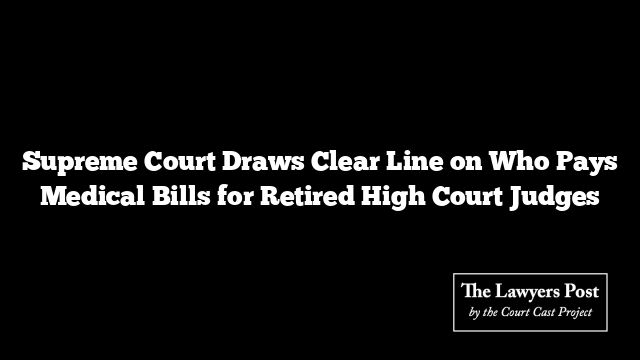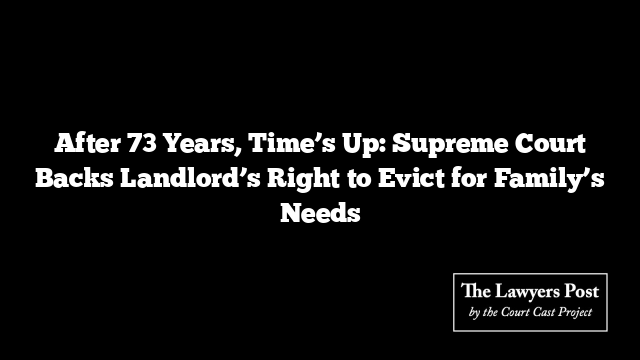In a move aiming to untangle a long-standing confusion, the Supreme Court has drawn sharp boundaries around which State shoulders the cost of medical benefits for retired High Court judges.
A Bench comprising Justices Abhay S Oka and Ujjal Bhuyan clarified that if a judge has been transferred between High Courts, the State hosting the High Court from which the judge finally retires will pick up the tab. In cases where a judge serves their entire career in the same High Court, the responsibility lies with the State where the judge was initially appointed.
“When we refer to the ‘concerned State Government,’ it means either the State where the judge was first appointed or where they retired from, depending on the case,” the Court spelled out in a decisive order issued on April 15.
This clarification revisits and refines an earlier February 18 directive, which had vaguely assigned the obligation to the “concerned State Government” without setting precise parameters.
Adding weight to its words, the Supreme Court issued a stern warning: any State or Union Territory failing to fall in line could face contempt of court proceedings. States have been ordered to file fresh compliance affidavits within a week, demonstrating their adherence to previous mandates related to medical reimbursements, cashless treatment schemes, and associated benefits for retired judges, their spouses, and dependents.
The Court made it crystal clear: “Non-compliance will invite action under the Contempt of Courts Act, 1981.”
The case, still ongoing since 2015, stems from a petition filed by retired Justice VS Dave on behalf of the Association of Retired Judges of the Supreme Court and High Courts. Despite multiple orders — including those in October 2018, April 2019, and February 2025 — uniformity in benefits across States remains patchy.
Among the directives States have been repeatedly told to follow:
-
Extend medical benefits equivalent to those for sitting judges.
-
Approve reimbursements for private hospital treatments without the need for prior State consent.
-
Transfer the authority for medical sanctioning to the High Court Registrar General.
-
Ensure reimbursements for treatments conducted outside State borders.
-
Establish and maintain a fully functional cashless medical facility.
States must now submit updated compliance reports to the Amicus Curiae, tasked with creating a detailed chart to track who’s keeping up — and who’s falling behind.
The Court had previously pulled up several States, notably Madhya Pradesh, for dragging their feet on introducing cashless medical facilities. It emphasized immediate and unquestionable compliance.
The next hearing is scheduled for April 29 at 2 PM, where the Supreme Court will once again take stock — and perhaps, crack the whip.





